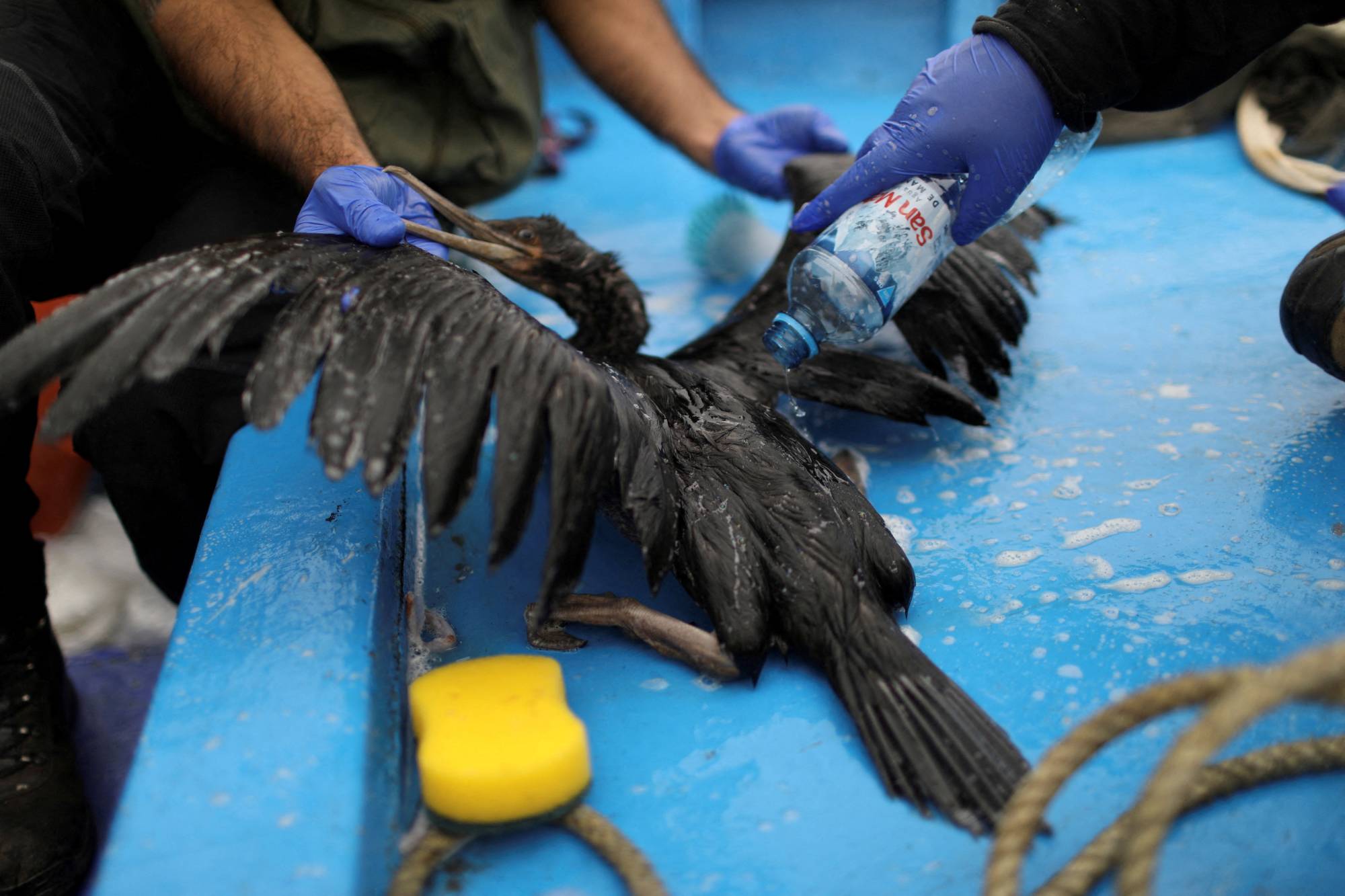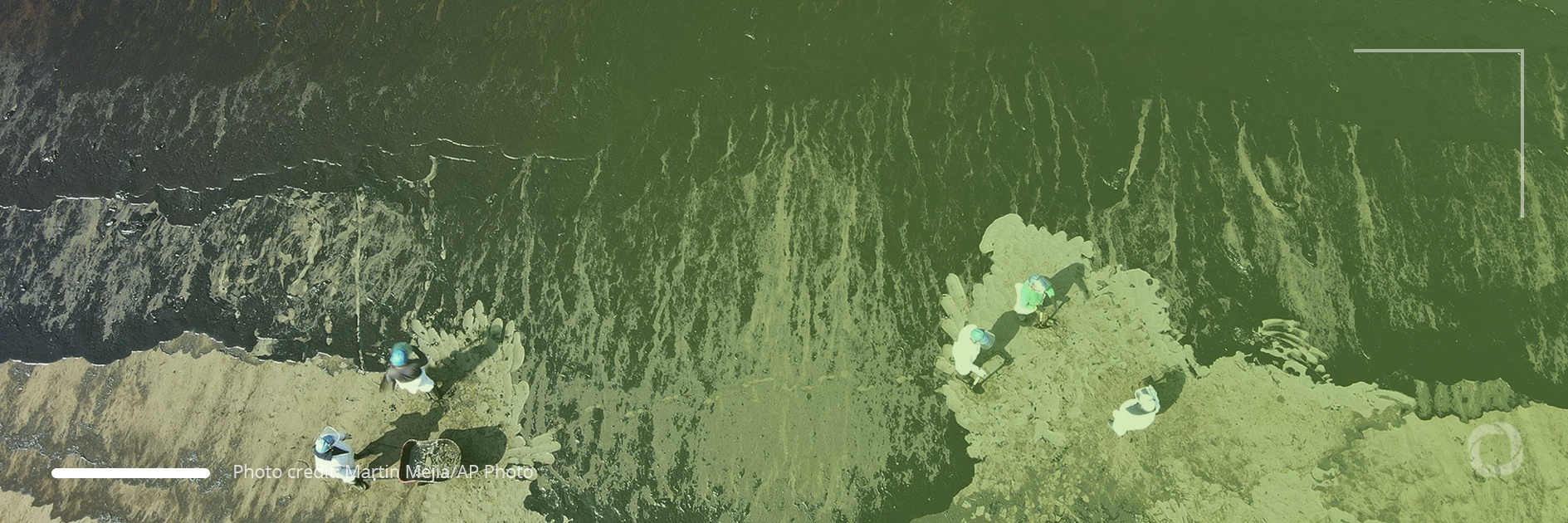Hundreds of animals, including endangered species, died when a massive amount of oil leaked into the sea in January causing what experts have called “the biggest ecologic catastrophe” along Peru’s Pacific coastline. The spill occurred at the Spanish-owned Repsol refinery which is located near the Peruvian capital of Lima. The leakage is said to have been caused when an oil tanker was hit by the recent tsunami that was triggered by a volcanic eruption. The government has now introduced a 90-day state of ecological emergency.
Hundreds of animals affected
About 6,000 barrels of crude oil spilled into Peru’s Pacific, the country’s Environment Ministry said. It noted that the leak had polluted an area of water equal to 320 football fields.
“Hundreds of animals have been rescued, and hundreds have died. It is the biggest ecological catastrophe Peru has ever had,” Juan Carlos Riveros, Scientific Director at Oceana Peru, told DevelopmentAid.
He commented that the most affected species were sea otters, Humboldt penguins, mostly juveniles, seagulls, and marine turtles. Scientists have spotted animals whose bodies were covered with oil as far away as 100-200 kilometers from Lima, mostly sea lions, seagulls, and penguins.

“The rescued animals have been taken to shelters but only half of them will survive as many are in a very bad condition,” said Riveros.
The spill has also affected the fishery sector with fishermen losing their jobs as they cannot fish in polluted waters. The government has offered them food packages but this will not be sufficient to meet all their needs.
Rescue measures
Appropriate measures appear to have been taken with delay.
“At the beginning, Repsol was unaware of the extent of the spill so it did not act, allowing the oil to spread further. When people in the media started to complain, it finally took action but, when it did, the oil had already covered large swathes of the ocean,” Rivero said.
However, Repsol has hired about 1,000 people to clean up the sea and has sent skimmer boats into the sea to collect the oil with experts estimating that about 60 boats would be needed to clean the sea effectively. The Spanish oil company has also been using pumps to clean the oil-polluted beaches. Many volunteers have also joined in to help clean the oil and rescue wildlife. As a result of these efforts, Repsol claims that about 35% of the spilled oil has so far been removed.
Who is to blame?
Lamentamos los daños que el derrame de petróleo ha provocado en el litoral peruano, la fauna y las comunidades de la zona y reafirmamos nuestro absoluto compromiso en remediar sus consecuencias Consulta los avances en https://t.co/T9UdXUxtUy y en @repsol_peru pic.twitter.com/xWPHyAuffI
— Repsol (@Repsol) February 4, 2022
Repsol is accused of failing to inform the authorities promptly enough for the extent of the spill to be accurately assessed. Peruvian President, Pedro Castillo, has described the leakage as “the biggest eco-cide on our coast” and said that “the state is preparing criminal, civil and administrative sanctions”. The authorities have not ruled out imposing significant fines on Repsol with the proposed figure standing at US$36 million.
For its part, Repsol initially denied any responsibility, blaming the authorities for not having warned the company of the imminent tsunami. The company has subsequently announced that it is carrying out an investigation into the event.
“We reaffirm our commitment to respond effectively and transparently to the public and the competent authorities, prioritizing people and communities,” Repsol said in a statement.
Long-lasting impact
According to Riveros, even if the oil is removed from the sea, we will definitely see the long-term effects of the spill which could last for years.
“We will see breeding problems amongst animals. Shellfish will accumulate toxic substances and they will retain these for even two to three years. Some populations will be affected for as many as 20 years depending on their life span, as in the case of penguins, so we are talking about a whole generation,” added Riveros.

